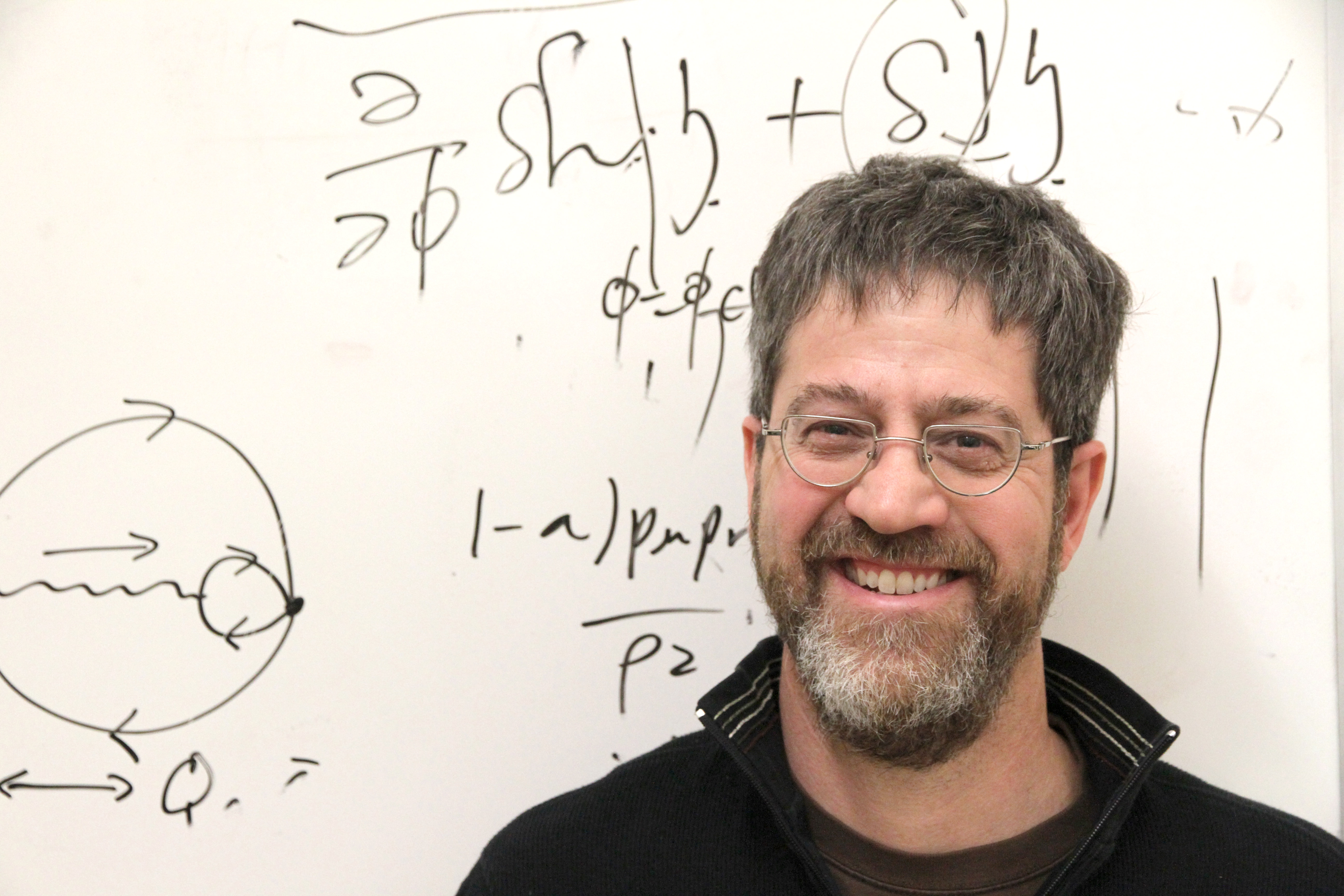Proving The Big Bang Theory
Theoretical physics, geek chic, comic books and the inability to talk to girls; who knew that was a formula for prime time television.
By Kris Foster The Big Bang Theory, which plays up the nerdy leanings of a group of physicists, airs on CBS in millions of homes every Thursday night. Count Tom Steele, an actual theoretical physicist at the U of S, among the show's fans.
The Big Bang Theory, which plays up the nerdy leanings of a group of physicists, airs on CBS in millions of homes every Thursday night. Count Tom Steele, an actual theoretical physicist at the U of S, among the show's fans."I heard about this show and gave it a try," said Steele, professor in the Department of Physics and Engineering Physics. "I saw the whiteboards filled with physics and was sucked in. Science is a part of the running story line and that pulled me in right away. We can relate, it's our life on film, except funnier."
This life in physics—both the science and the personalities—that creates the background of the show hits the mark, said Steele. "In general, the science in The Big Bang Theory is reasonably accurate. The ideas are brought together out of context and a lot of what they talk about is already known and what we teach in class (but) they wouldn't be research problems that we study."
The discussions and the content of the whiteboards that appear in various scenes, continued Steele, make sense to someone with a general background in physics. "The authenticity is there. Quite often I hear about experts in physics examining the whiteboards in the background of the show and playing a game to see if they can find inaccuracies in the work. For physicists to play this game, the level of accuracy is pretty good."
So the science is bang on, but what about the scientists who are stereotypically portrayed as bumbling nerds who can't talk to women?
Indeed, parts of the show's exaggerated cult of personality are accurate, he said. "In some way the show makes fun of the peculiarities of science characters and the practice of science, but it does it in a way that humanizes both the science and scientists. I have run across many of the personality types that are on the show; not at the U of S of course," he said with a laugh. "I think people have to remember that this is a comedy (and) exaggeration is part of the humour. There are some big egos in science, no question, and even bigger rivalries. I've seen this play out, but this happens in every field."
The show also sheds light on a hierarchy of science with the physicists making fun of the lowly engineer, said Steele, who studies an area of particle physics known as the standard model. "Engineers and string theorists would look at my area of research with disdain," he joked. "It's not really a hierarchy, but a deeper and more vicious rivalry in theoretical physics."
Beyond being one the highest rated television shows of the new fall season, The Big Bang Theory brings an extremely complex area of science to the masses, leading many to wonder how this show became a hit.
"I think the broad appeal is seeing these scenarios play out and how experts interact with the non-experts. In terms of the general public, I think it has increased awareness of physics and general science, so in that way it has had an impact. I can't say I hear my undergrad students discussing the show in class, but my graduate students seem to have latched on to it. I think they relate with it because it portrays a piece of their world."

